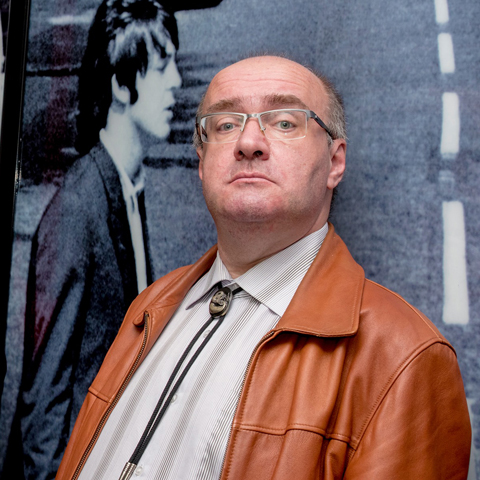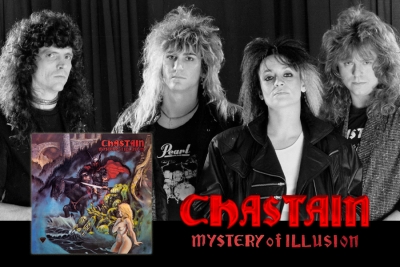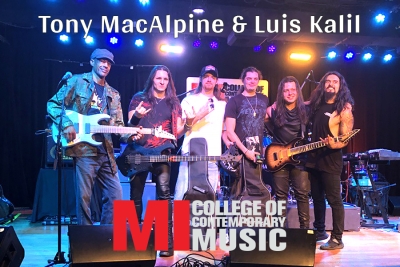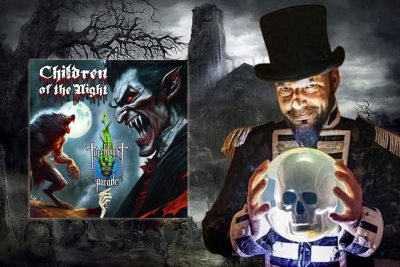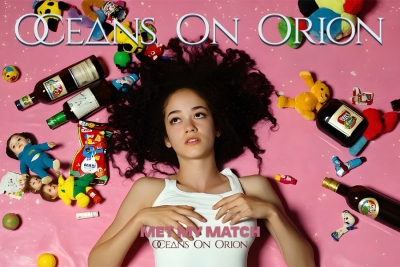It was very, very vain: it was on this album that the leader of the band André Andersen, a Russian-born multi-instrumentalist and composer, embodied the plans hatched back in 1999 — to create and record a full-fledged opera project featured several vocalists. And on a more serious basis: the source of inspiration and, let's say, the libretto for Dystopia — Part I was the first half of a very popular and respected book by the classic of American “new wave” science fiction Ray Bradbury (1920–2012) — this time it is Fahrenheit 451. As the name of the album implies, in the future, we should meet with the second part of Dystopia, but for now, it is worth discussing with the ideologist of the band the novelty that will fully define the face of Royal Hunt in the second decade of the XXI century.
VB: This is the second time you have taken on an album based on the book of Ray Bradbury, this time it is Fahrenheit 451. What is the reason for such choice of primary literature sources?
AA: Just as the Martian Chronicles, according to which the whole trilogy of works of Royal Hunt Intervention — The Mission — The Watchers (2000-2002) was written, so Fahrenheit 451 is one of my favorite books, practically right from adolescence. I read it once, and they both just stuck in my head... After all, Ray Bradbury actually addresses very interesting topics in his works, and in an unusual way — they, I would say, are very universal, but these topics are packed into serious sci-fi shell. So Bradbury's books are not a monument to a bygone era, they are completely modern literature, real books of today.
These books give freedom in songwriting because their content can be interpreted in so many different ways. I had ideas for writing concept albums based on other books by other authors, but it so happened that these two books by Bradbury still attract me more than others. I repeat that, perhaps, because of the freedom of interpretation of their content.
After all, I did not create an exact musical parallel to this book — I transferred its plot to the present day, with all the problems that we have here and now, and not with those described by Bradbury himself, who wrote this book in 1953. After all, he imagined such a future, according to his rather famous interview, in 1999, and we are now in 2020, and these problems described in the book have not disappeared for almost 70 years, they just moved toward us here... And this, let's say, freedom of Ray Bradbury’s pen made his books so attractive to me and my work.
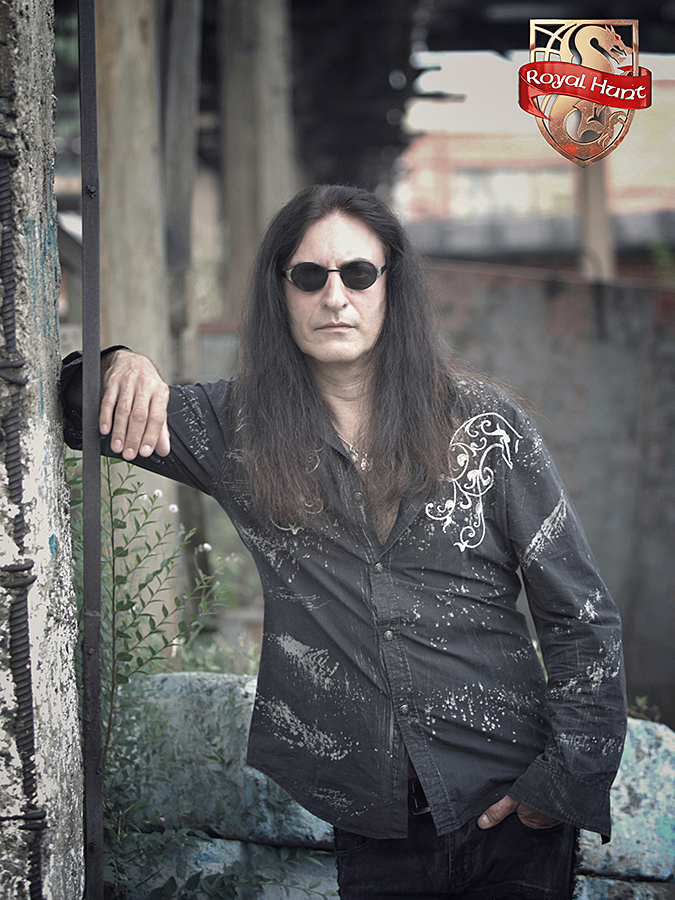 André Andersen, Royal Hunt keyboardist, songwriter, and founder
André Andersen, Royal Hunt keyboardist, songwriter, and founder
VB: As far as I remember, you first started aiming for a monumental work even before The Mission — it was supposed to be actually a rock opera about the King of Music. Why did that work never saw the light of day, and can we consider Dystopia as its distant successor?
AA: Of course not! Yes, there was such an idea, and I was very eager to make that opera about the King of Rock — but, nevertheless, work on it did not work out, and then I myself lost interest in this plot... That's all.
VB: How important, in your opinion, is such a conceptual appeal to literary works in modern serious rock music and, perhaps, not only literary works of the 20th century?
AA: Why not to take this approach? Yes, it sounds hackneyed, but books are eternal. Of course, I can't imagine that every time I take on a new Royal Hunt album, I will create such a “book” concept album, but sometimes it is very appropriate. The rich content of classic books, their exciting plots — all this provokes creativity, and it is not for nothing that these books are constantly being reprinted in all languages. And it's easy to write music for an exciting story — because the whole drama is already embedded in such a story itself. A good book always inspires you to write both good music and interesting song lyrics.
VB: How has the current unfortunate pandemic of the fancy virus influenced the Dystopia material? And when did you start working on the material for this album at all?
AA: The situation with the pandemic did not affect the recording of the album in any way, but it did fit into its concept just amazingly. I did not even expect this — especially when you consider what is happening in America now, and all these stories about electronic censorship on the Internet also fit into the plot very well. I started working on the album directly in 2019, but slowly. This happened after the guys and I got together in Stockholm and discussed the concept of the album, which captured even those of us who had not read that book by Ray Bradbury. They immediately ordered its cheap editions from Amazon and got acquainted, so to speak, with the original source... It seems that only our guitarist Jonas Larsen never read the book.
As for the second, so to speak, half of the concept — so that various singers would take part in the recording of the album, then I introduced it to the musicians a little later, although I myself had such an idea for a long time. I didn’t start talking about this part right away — so as not to scare people off. Of course, there was a discussion with all the pros and cons, but we agreed on the idea that working with different vocalists would be the most interesting option for us as a group — after all, Royal Hunt had already recorded concept albums with one singer, The Mission (2001), and both parts of Paradox (1997 and 2008), but here we distributed the vocal roles.
Work on the album began in late spring 2019 and was not in a hurry until the summer of 2020, but for the last few months I was just sitting on the album... The original plan was this: the album will be released in August 2020, and in October-November, we are going on tour. But in the spring, when it became clear that with the global lockdown our plans would not come true, the release dates for Dystopia began to be postponed and so moved to December. It was simply pointless to postpone this date further.
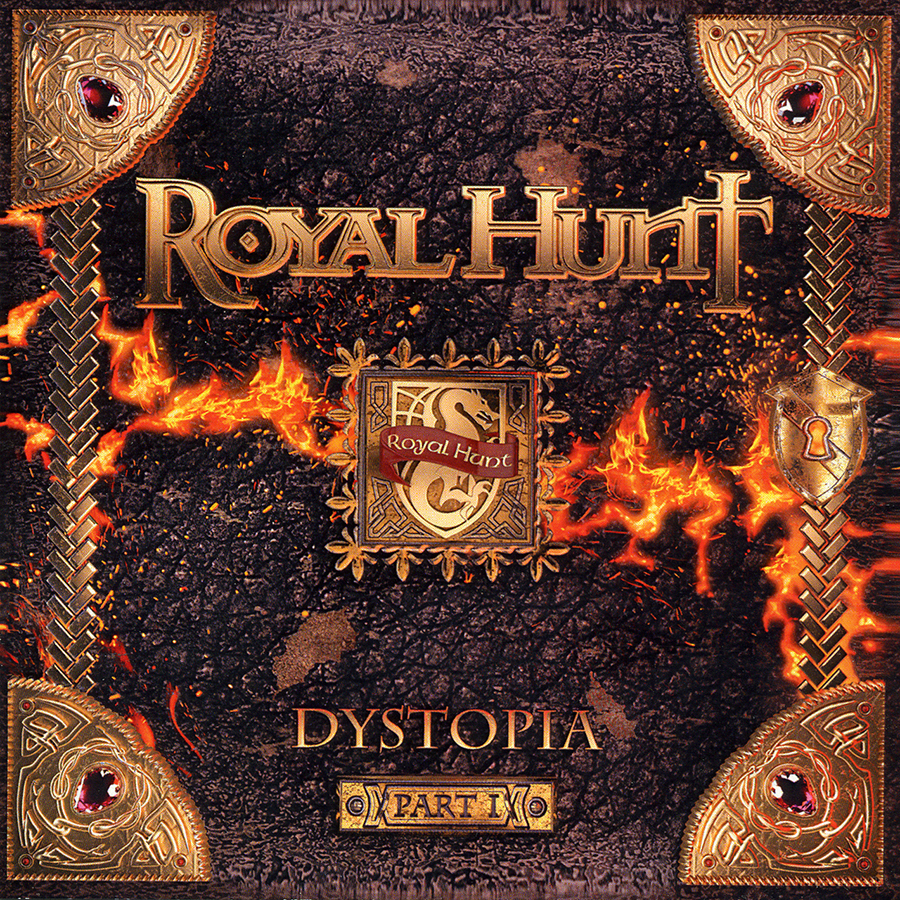 DYSTOPIA Part I - a studio album by Royal Hunt
DYSTOPIA Part I - a studio album by Royal Hunt
VB: And what actually predefined exactly this, and no other choice of vocalists for the album?
AA: Of course I had some ideas about who exactly should play which role. I understand this not so literally, of course, the very concept of “role” in such a piece of music — it is somewhat vague. That our vocalist DC Cooper will sing the main role — it was already clear. But I always imagined which voice each individual hero of the book and, accordingly, the album should have — this is how the choice was made.
For example, Mark Boals simply ought to appear in the ballad I Used To Walk Alone, but I didn't want to make such a typical modern rock duo out of it, when the male vocals are much lower in timbre than the female. And who else can sing so high, if not Mark, and completely without tension — for him such a timbre is natural! And so on — I just started from the desired sound. And to imagine this mechanical dog as a weapon of destruction — how can we do without Kenny Lübcke's vocals, and I simply could not imagine any other vocalist in this place!
VB: How did it happen that it was Mats Leven who sang the main hit of the album, namely the number The Art Of Dying, which became the pilot single of the new work?
AA: But who could know that The Art Of Dying would be the biggest hit on Dystopia? It just happened, and he himself on the recording had to enter a kind of image of Death. Knowing Mats well personally, I very well imagined him in such a role, plus on the only album of his project Amaseffer (2013) he had very interesting vocal intonations — just what I needed when recording this number.
Mats was actually the first singer I got on the phone with before recording the vocals for Dystopia. Of course, Mats had the same advantages as other singers of the project — I know all of them personally, and being forced to work with them at a distance, I understood that it would be easy to cooperate with all of them in terms of edits and vocal takes: no ambitions, no hard feelings. Last year we all had enough problems!
VB: Did such work with several vocalists predetermine the peculiarity of writing separate numbers of the album specifically for each of them?
AA: I have already said that even before starting work on the album, I had an idea of the voice needed for each of its numbers, and therefore, in fact, 90% of the material was written for the right vocalist. Of course, I left myself the freedom to maneuver in case the recording did not turn out the way I needed, and then I would have to look for another singer for a specific piece. But, fortunately, everything went without a hitch.
VB: Do you plan a show production of Dystopia just as a standalone work, possibly even with some vocalists who participated in its recording?
AA: Yes, that was the plan for our tour, planned for October–November 2020, and which was not destined to come true. An agreement was reached with all the vocalists, and it was decided that in the first part of the concert we would play Dystopia material in its entirety and in album order. And in the second — a set of older Royal Hunt hits, where our guests could fully reveal themselves beyond those not very big roles that were assigned to them on the new album. Also, within the framework of such a concert, some interesting duets were planned, and we had time to make everything interesting and beautiful. And everything would have happened if it had not been for the lockdown.
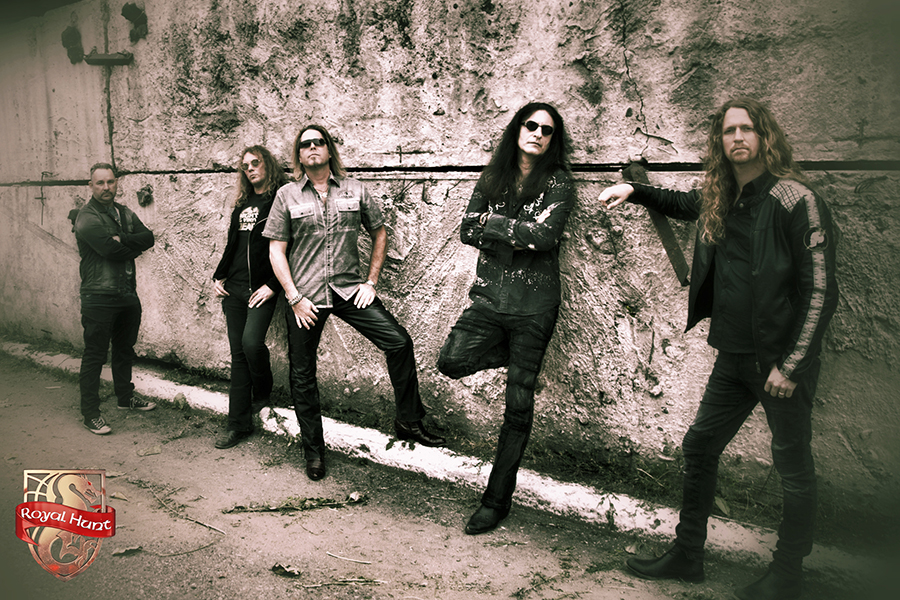 Royal Hunt, 2020
Royal Hunt, 2020
VB: As we can notice, Dystopia conceptually covers only the first half of Ray Bradbury's book Fahrenheit 451. Are there any plans for a sequel, and if so, when would we be able to hear it?
AA: A continuation is definitely planned. And in an ideal situation, if no new cataclysms happen, we plan to release it at the end of 2021, already in winter. This is the most general plan, and I have already started working on musical ideas and writing some sketches. The main intrigue is that in the second part of Dystopia three new characters should appear according to the content of the book, and I'm starting to think about candidates for their vocal roles right now. The idea of choosing vocals is the same as in the first part. Somewhere duets will be sung, somewhere the songs will be simply guest solo numbers.
When you write material on separate chapters of a book, you always understand which chapters can be expanded, and which ones can simply be added to the album along the way, just in fragments. Therefore, much will depend on whose role in the context of the second part turns out to be more significant and voluminous. So we’ll see then.
VB: It has become trendy for big pop artists to do what, for lack of a better name, is called “multimedia albums.” Is there any intention to do something similar with Dystopia and the second part of this work as well?
AA: I can't imagine that we wanted to make an album with some kind of augmented reality, but we had a plan to make a film based on the album. No, not a music video, but a mini-film combined from individual songs’ projects. This plan was the reason why the short instrumental pieces The Missing Page (Intermission I) and Midway (Intermission II) appeared on the album. Perhaps when we get to work on the second part of Dystopia, some of these plans might come true.
There is an opportunity to make such a film relatively inexpensively, but this is the main version of how I imagine a multimedia project within the framework of our new album. So that it will be the visual representation of the album as a whole. Something like the long-forgotten video of the Queensrÿche’s Video: Mindcrime (1988) — also produced for the conceptual album, but now it will be possible to produce, of course, on a completely different technical level.
VB: From your point of view, has there been any new approach to writing and arranging the material on Dystopia? From my point of view, the album in places strongly correlates with the American arena-rock of the late 80s — only, so to speak, with its “smart” side...
AA: Well, we all live and breathe the same Kansas band! Of course, with a concept album that we recorded with a swing at what is now said to be cinematic, from a musical point of view, you can move left and right much further than with ordinary album work — which is just a set of songs and instrumental numbers.
Although Royal Hunt has wide musical boundaries, almost from speed metal to jazz, if you go too far on a regular album with unusual music, then the fans begin to resent. But that's natural — it's just not the material they expect from us. And when you conceive a certain concept and bring it to life — then it's another case. I just can't imagine a ballad like I Used To Walk Alone on the regular Royal Hunt album — that would be just nonsense. But in the Dystopia concept, it certainly is in its own place.
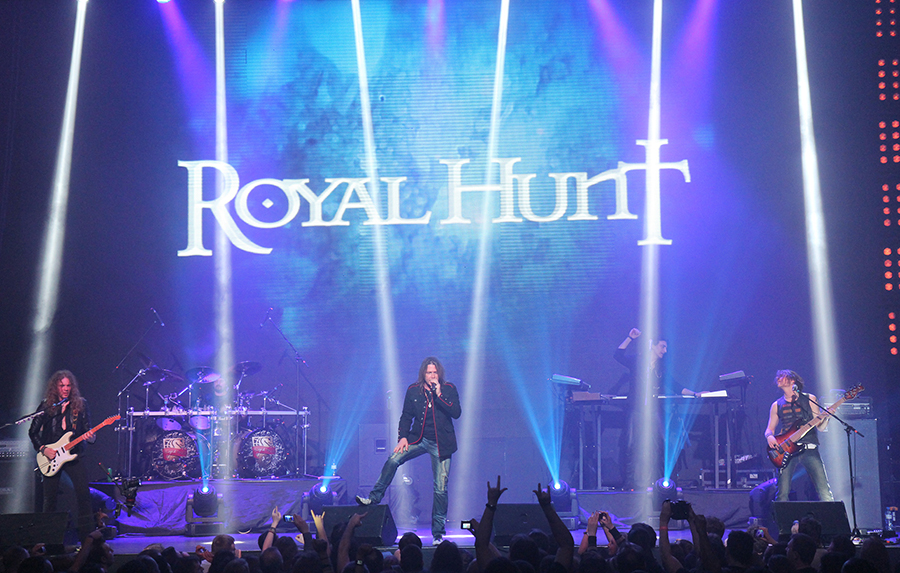 Royal Hunt livre in concert
Royal Hunt livre in concert
VB: You and I once talked about your methods of studio production of guitar parts. Did they stay the same when recording the Dystopia material?
AA: Yes, only this time more amp and guitar models have been added! Actually, guitar production is just related to the previous question — when you diversify your own music to the left or to the right, you have to look for a new sound for it, including in the sense of the guitar sound. This time, we also used the ENGL amplifier during the recording, and we also took from our old friend Peter Brander some very rare Italian combo amplifier, whose name I don't even remember now — it also sounded very interesting and unusual.
In combination with this amplifier, we used the now fashionable ribbon microphones, which we also borrowed from Peter — this is the first time in my career that I have used such a combination. The result can be heard in the ballad I Used To Walk Alone. But the production method has not fundamentally changed — there were just more guitars and amplifiers, as I said.
VB: How much has changed your approach to creating keyboard arrangements? I don’t even remember when the keys of Royal Hunt sounded so multi-layered and voluminous, although such a remark in fact seems to be silly...
AA: On the new album, I needed to play simultaneously both the role of the orchestra and the role of the keyboard soloist, plus I should sound good in both of these roles at the same time. That is, the solo, synthesizer parts were supposed to become more voluminous, and the samples of classical instruments were supposed to sound a little sharper. So all these parts came close to each other and turned into the sound of one very large instrument with a great sound.
I already experimented and figured out how this approach would work in a live concert situation, and how I can reproduce such a sound on stage — everything worked out well. Yes, I can't remember that before I used this strategy of “bringing together” diverse keyboard parts — yes, I tried something similar, but the result did not suit me. So now I started to arrange my parts in this way from the very beginning of the work on the album material.
VB: How much do you think Dystopia fits into the general trend of the modern “smart” scene, whatever your band’s style is, from hard rock with progressive elements to progressive metal?
AA: I will express myself somewhat impudently, but no matter what they say about us and no matter how they call our music — yes, even in a fashionable way, “symphonic metal”, but Royal Hunt has its own style. I had an interesting conversation with the editor of one of the European music magazines — he is a fan of the band, he loves us, but not to the same extent as his wife. And when he listened to the streaming of the album before the interview with me, his better half recognized the band while listening one of Royal Hunt ‘s pieces in just ten seconds!
We are absolutely recognizable, and with any singer, and that's great. In fact, I am very pleased with the recognition of Royal Hunt, although at the beginning of our career it was very upsetting for me — simply because journalists constantly came up with some new definitions for our music and style. And yet they tried to squeeze us into some kind of genre framework, but this is not true. Many people say that we play progressive metal, but this is not a truth: for me personally, progressive metal is, say, Dream Theater, as the standard of style today. AOR? No, AOR is Journey and bands like that, and our music just has elements of prog metal, and AOR, and so much more. Therefore, Royal Hunt had and still has its own style, and thank God! The band still sounds very unique and recognizable... well, I said that already.
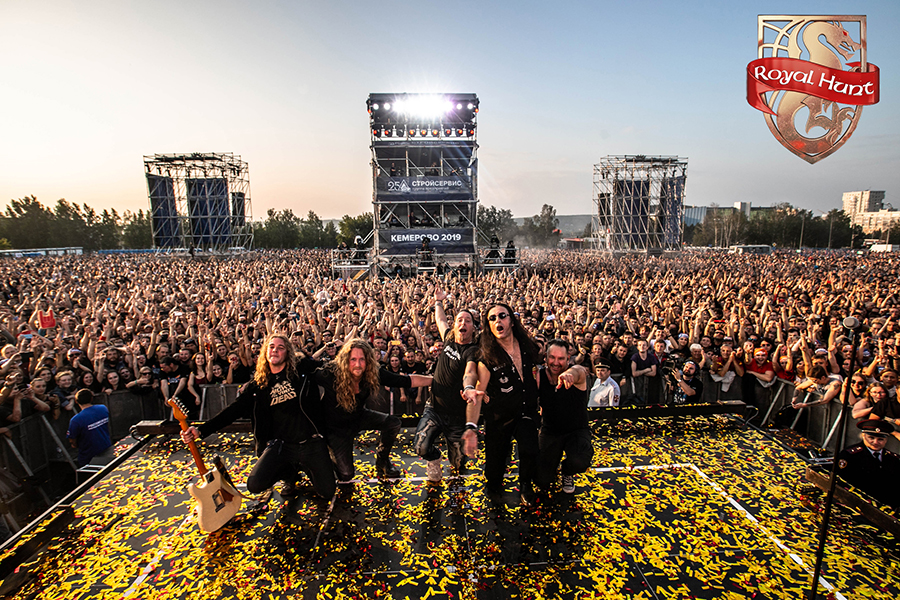 Royal Hunt in Kemerovo, Russia, 2019 Tour
Royal Hunt in Kemerovo, Russia, 2019 Tour
VB: The new album is released in a double CD format, where instrumental, or, if you will, karaoke versions of all the material are presented on the bonus disc. Why this essentially Japanese marketing move now made it for the European market as well?
AA: Already a few years ago we began to receive a lot of emails and messages from fans with the same question: why can't we get instrumental versions of Royal Hunt material? At first, I didn't even really understand what they wanted — I thought they were referring to full-fledged instrumental versions of the tracks, where vocals lines would be replaced by guitar or keyboard parts. And then they explained to me that people want what can be called “karaoke versions”, that is, just songs without vocals. Well, since fans want this kind of material, then they have the right to get it.
This story got a good, so to speak, bonus — when we first released our penultimate album Cast In Stone (2018) in this way, a couple of instrumental versions from its bonus CD got into commercials and brought us a pretty good income. And we decided that there is a certain sense in such bonus discs: on the one hand, our management can promote such instrumental material in advertising and in television films, and on the other, the fans are happy. It is impossible to lose in this situation.
VB: Can you recommend Dystopia to a listener who is not familiar with the band as his “first Royal Hunt album” — just to get to know the band?
AA: I think yes! Although for a person unfamiliar with the work of Royal Hunt, the stylistic diversity of Dystopia may seem a little intimidating. However, the album also contains tracks that are very common to Royal Hunt, so getting to know the band here and now will be revealing and interesting.




